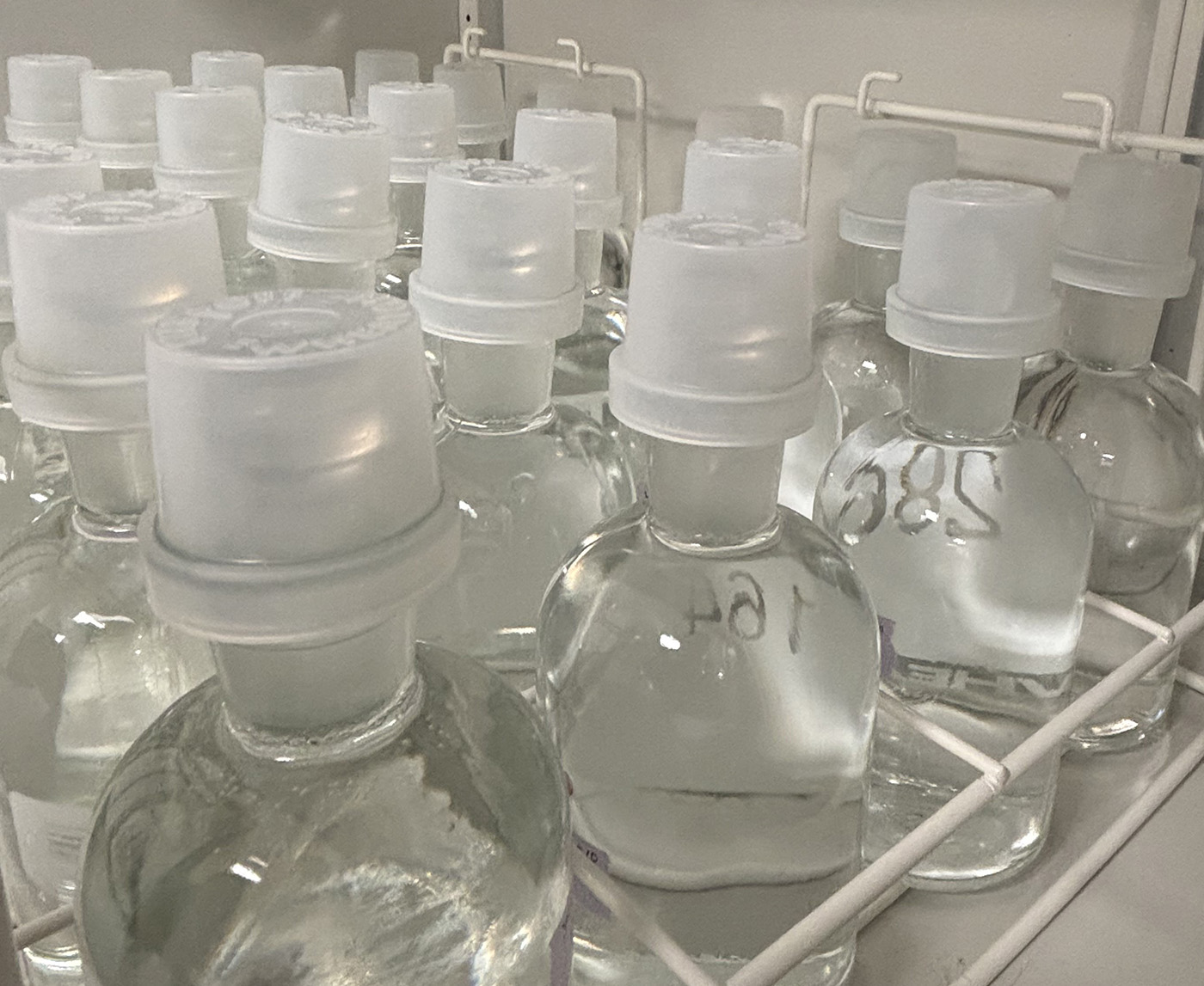Summary
The ISO 10707 test determines the ultimate aerobic biodegradability of organic compounds in an aqueous medium by measuring dissolved oxygen consumption during biodegradation in closed bottles. Generally, this test takes 28 days.
The ISO 10707 Testing Method
This test is very simple and can be applied to a wide range of products and substances. To set this test up, the substance is set up in a closed bottle with no headspace. As degradation occurs, the dissolved oxygen (DO) within the system is consumed. This is what is measured and used to calculate the degradation percentage. To find this percentage, the ratio of dissolved oxygen consumption to theoretical oxygen demand (ThOD) is used.
This test is appropriate for substances that are highly soluble, volatile, and/or absorbing.
Contact Aropha for ISO 10707 Testing Today
When you are looking for a testing partner to provide you with streamlined, efficient biodegradability testing, Aropha is here for you. We combine our digital twin simulation platform with lab biodegradability testing to provide accurate biodegradability testing. Whether you are looking to test the ecotoxicity, compostability, or biodegradability of your products, we have the capabilities needed to provide you with detailed, quick testing.
Not only can we test your products, but we also can provide you with the test documentation necessary for certain eco-labels and regulatory agencies.
Contact our team today to get started!
ISO 10707 Requirement and Applicability
Different testing methods are applicable for materials with different properties. Below is a summary of the applicability of ISO 10707. Please check our Method Selection Guide to select the most appropriate method for your materials. You can also find the applicability for many other methods in our Resource Center.| Test | Analytical method | Sample info required * | Poorly soluble | Volatile | Adsorbing |
|---|---|---|---|---|---|
| ISO 10707 (Closed bottle test) | Dissolved oxygen | ThOD or COD * | +/- | + | + |
*“Sample info required” is the information needed to calculate the biodegradation percentages. This must be available for a selected method.
*“ThOD” can be easily calculated based on the formula of the sample. Try our Online ThOD Calculator.
*“COD” can be used as an alternative to ThOD if the formula of the material is unknown. We provide COD analysis at Aropha.
Pricing
Contact us for High-Throughput Screening PricingContact us for Biodegradability Certification Pricing

